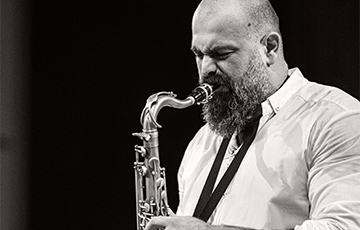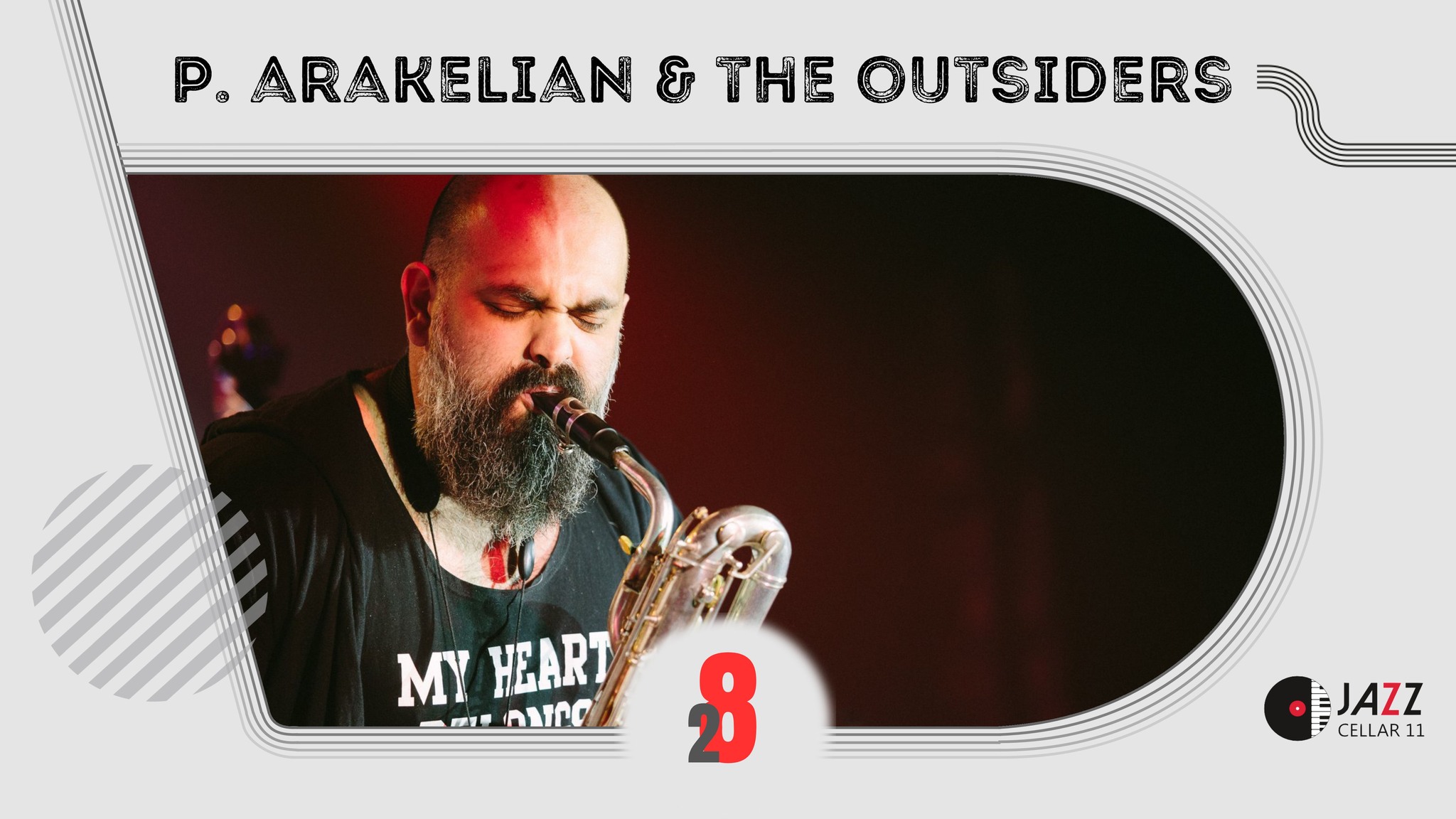Pavel Arakelian: Belarusians Have To Know That There Are Also Populists Under White-Red-White Flag
26- 25.01.2024, 21:23
- 21,146

It is important to look at people's deeds, not their words.
Pavel Arakelyan is one of the most iconic jazzmen in our country. He is known to Belarusians both as a solo artist and as a member of Krambambulia, Apple Tea and Svet Boogie Band. In Belarus, he was repeatedly recognized as the best saxophonist in the country.
After the 2020 elections, he supported the protests with his music at courtyard concerts and was arrested. Pavel left Belarus only in the autumn of 2022. Today he lives in Vilnius, where he continues his musical career.
The Charter97.org website talked with Pavel Arakelian about music, emigration, the state of culture in Belarus and the important choices that Belarusians have to make.
– Pavel, what about your life in Vilnius? Did the jazz society of the Lithuanian capital welcome you?
– I managed to join it almost from the first weeks since I am a musician of a fairly good level. Many people say that Lithuanians are rather cold people, but I did not notice it at the musical gathering. I was accepted almost from the very beginning, was strongly supported and is now very well treated.
There is a very big difference compared to Minsk. I came to Vilnius in the winter of 2022, when there were Christmas carnivals, open cafes, and fairs. There is good music everywhere, it plays in the background. If Russian pop music is played everywhere in Minsk, then jazz, blues, and good rock can be heard in Vilnius. We can say that the residents of Vilnius have a very good musical taste, it is already like a tradition.
I noticed that people шn Minsk often force themselves like: "We are intellectuals, we need to go to jazz." There is no such thing here. Once again, there is no dominance of Russian pop music, which, unfortunately, is mainstream in our region. Here, people quietly go to classical jazz, modern, and improvisational music. There are several music festivals in Lithuania, through which tens of thousands of listeners pass. This is very striking. I think this is because Lithuania lives in a different information and cultural field after the collapse of the USSR.
– Tell us about your project please, you performed it on February 8.
– There is a main jazz club in Vilnius called Jazz Cellar 11. We often play there in the framework of different projects and musical jams. Once a year, we try to perform concerts of the original music. A lot of music has accumulated, so this time, on February 8, there will be a concert of my author's music. The whole project will consist of dedications, we even called it “Dedicated To…”. Music will be dedicated to different people, musicians, places and events. Including a dedication to Lithuanian musicians, who really impressed me. So I invite everyone.

– How do you assess the state of music and culture in Belarus?
– I have been out of the country for more than a year, but judging by the feedback, including from loved ones and those who went to concerts, I understand that culturally everything is totally frozen. Russian pop culture, which has always been lavished in Belarus, has now flooded the entire musical space. Nothing significant is happening in the cultural sphere. I can draw the same conclusion based on the number of jazz musicians I know who have left. Of course, someone stayed, but there was always a shortage of professionals in the jazz sphere in Belarus. Every person who leaves is a serious blow to the sphere as a whole.
As I understand it, it is very difficult to get permission to hold some concerts today. If earlier everything that was not prohibited was allowed, today everything that is not allowed is prohibited.
– And what about the cultural projects that Belarusians do abroad?
– I can only speak about my field and express my opinion. As far as I can see, Belarusians are creating something specifically for Belarusians. Unfortunately, they often continue to focus on the Russian-speaking audience. They say that we have some good projects in electronic music.
There are a lot of good musicians with Belarusian roots who moved before 2020 in Germany.
– You have not left Belarus for a long time – until the autumn of 2022. You even had to sell musical instruments to have some money. Were you hoping for something or was that your strong stand?
– Rather, I was hoping something was about to happen. Maybe it was some kind of infantilism. Of course, emigration is not the most pleasant thing, especially forced. For me, the last marker was a warning that they were preparing to start a case against me. I understood that many Belarusians began just to live their lives, and I should not hope for any quick changes. I have an elderly mother and a cat who has diabetes mellitus. There was an understanding that I would be arrested for nothing, and there would be no one to take care of my family.
– Who or what inspires you today?
– Back in 2020, it was clear that if we did not get rid of this government, the country would turn into a full-fledged concentration camp. Now we are observing this process. I can't say that someone inspires me today. I have great respect for people who deliberately laid down their lives on the altar of Belarus — Maryna Adamovich, Mikalai Statkevich. I can't say that anything inspires me now, but these are the people for whom I am very worried.
I am often scolded for this, but I will say that Belarusians today need to take care of themselves – their safety and health.
The second thing is to come to an understanding that there are populists, no matter what ideas they adopt to gain people's trust. It does not matter if these people are under red-green or white-red-white flags. You need to look at things. A person must first of all show devotion to the cause and give everything for the sake of Belarus. When Belarusians realize this, we will have some chance to change the government and make the right choice.











